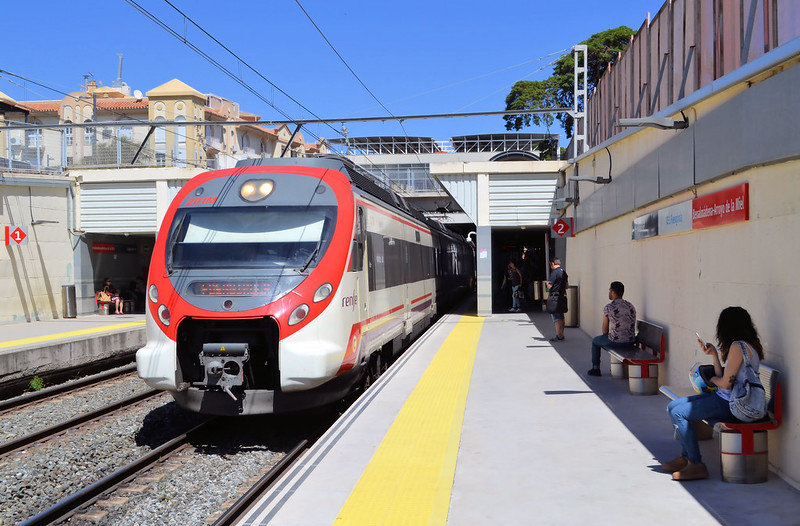
Photo: R~P~M (Flickr)
Spain launches free rail travel scheme
02 September 2022
by Christopher Carey
Commuters in Spain can now access free train travel on some short and medium-length journeys as part of a new scheme to cushion the impact of recent cost-of-living increases.
Passengers can obtain tickets via the national rail network Renfe’s app or at railway stations, where they must nominate a destination and pay a deposit of €10 (US$9.93) for suburban lines and €20 for middle-distance journeys.
The deposit will be refunded when the scheme ends on 31 December – but only if the ticket holder has travelled at least 16 times to the specified destination.
While the initiative is aimed at commuters, tourists and leisure travellers can also avail of the tickets.
“I’d like the people of Spain to know that I’m fully aware of the daily difficulties that most people have,” Spanish Prime Minister Pedro Sánchez said in July.
“I know salaries cover less and less and that it’s difficult to get to the end of the month.”
The ticket applies to all destinations in the same zone as the specified station. In the case of Madrid or Barcelona, this would mean free travel within a radius of approximately 50 kilometres of each city.
Tickets for public transport – metro, buses and trams – will also be cut by at least 30 percent during this time, and by 50 percent in the Catalonia region.
The scheme is expected to cost €221 million and will be funded through a windfall tax on banks and energy companies that is expected to raise €7 billion to help citizens with the cost of living.
€9 ticket
German transport fares returned to normal this week after a three-month experiment with €9 tickets for a month’s unlimited travel on local and regional public transport networks.
Introduced in June, the scheme has proved popular with the public and a total of 52 million tickets were sold.
One of the primary aims of the ticket was to reduce car use and boost Germany’s pledge to become carbon neutral by 2045, but data on whether this has occurred is so far mixed.
The Association of German Transport Companies (VDV) estimates that around 1.8 million tons of CO2 emissions were prevented during the scheme, citing the numbers of people who switched from cars to public transport.
But according to Germany’s Office for National Statistics, the first month of the scheme saw only a slight reduction in road traffic, but a huge increase in rail travel – in June 2022, average rail travel was 42 percent higher than in June 2019.
A study from the Technical University of Munich in July showed that 35 percent of 1,000 respondents took the bus and train more often, but just three percent used their own vehicle less often.
A full analysis of the initiative is expected to be published by mid-autumn.
Image: R~P~M (Flickr)










